1. Introduction
Kitchen remodel is one of the most important improvements of a home in terms of both cost and sentiment. The kitchen has been thought of as the soul of the house, bringing together a family to share meals, stories or laughter. However, most people know that it takes time and effort to upgrade the kitchen from a worn-down area to a contemporary and full-fledged room.
This article will be about every phase of the renovation from planning the project right up to demolition and up to the installation and finishing of the project so you will be aware of how long it would take to accomplish the project.
2. Key Factors Influencing Kitchen Renovation Timeline
Every renovation project is unique, and the timeline for your kitchen remodel depends on various factors:
- Kitchen Size and Complexity: The size of your kitchen in terms of its size and design also determines the duration and cost of the whole project. , that is why the time required to complete larger kitchens when many cabinets, numerous lighting fixtures, and numerous appliances are installed is more.
- Type of Renovation: Some sections can be renovated without affecting others, repainting, or swapping cabinet doors takes a shorter time than moving walls and installing new pipes and State-of-the-art cabinets.
- Contractor Availability: Contractors may not have time to attention to a particular project hence they may take some time before starting a project. When it comes to selecting the right contractor time plays an important role in the whole process.
- Material Sourcing: When these are ordered on tender, particularly cabinetry, countertops and special appliances, the lead time is normally long. These items may come with a time lag and may therefore affect the timeline if such items are to be included in a project, they should be ordered early.
-
Permit and Approval Process: Certain municipalities have restrictions for structural, electrical and plumbing permits. It can take several weeks of additional time if the application goes through the review or needs adjustments.
3. Initial Planning Phase
By far, the most important preparatory stage is the planning phase of the renovation process. This stage, typically lasting 2-4 weeks, includes:
- Setting Goals and Budget: It is crucial to understand the needs that are essential and develop a budget that will likely include other essential things. This is the time to determine the scope of the renovation including whether it is going to be a simple replacement of fittings or a total overhaul.
- Timeline Expectations: It is advisable to set a timeline after consultation with the contractor. That will prevent pressure and ensure that there are no confused expectations concerning project timelines.
- Choosing a Design Style: Choose its design from any style ranging from farmhouse style to contemporary style. Knowing the course of style a prioritized also enables quick decisions concerning material and its finishes.
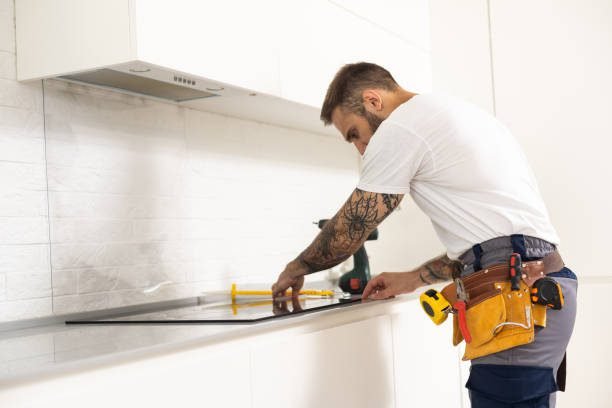
4. Pre-Construction Preparation
Preparation before construction begins takes about 3-6 weeks and involves:
- Permits and Approvals: Getting approval for the permits for your project may take between a few days to a few weeks depending on the regulation of your area or the scale of your project.
- Finalizing Blueprints and Designs: After having a general format and layout you need to consult with the architects or designers to bring that layout into a better shape. Alterations that occur at this stage are far less complicated as well as significantly cheaper compared to the midway through the project.
- Ordering Materials and Fixtures: After designs, make sure that all the materials should be ordered immediately to avert future problems. Countertops and cabinets, which are orders made always take time before they are delivered to the shops.
- Preparing the Space: Organize cooking utensils and cutleries and get a temporary place to prepare food in case you cannot get to the kitchen for weeks.
5. Demolition and Site Preparation
The demolition phase is usually quick, lasting 1-3 days:
- Scope of Demolition: It can entail pulling down overhead cabinetry, old countertops as well as walls in certain remodel projects.
-
Potential Issues: They can also come with hidden issues such as wiring or plumbing, asbestos or mould which will prolong the process or necessitate repairs.
6. Electrical and Plumbing Work
Electrical work and plumbing lay the basic groundwork for any renovation to be a success. This phase typically takes 3-5 days:
- Electrical Work: Switches may need to be moved, or additional outlets installed which could involve a lot of rewiring situations similar to lighting.
- Plumbing Adjustments: That is because relocating the sinks, and dishwashers or adding a pipe for the refrigerator means rearranging the plumbing, which is a difficult task.
- Inspections: Following electrical and plumbing jobs, one is allowed to start the project based on code considerations in many areas.
7. Structural Adjustments and Framing
If your renovation involves structural changes, this phase will take an additional 1-2 weeks:
- Wall Adjustments: If planning for an open floor layout design, some walls may need to be torn down or some loads transferred, thus taking additional time and probably reinforcement.
- Framing: If there are new walls or alterations to the layout then this will slow matters down also if reinforcement is needed for strength.
8. Flooring Installation
Flooring installation can take 1-2 days to a week, depending on the materials chosen:
- Type of Flooring: Carpet tile and hardwood floors are normally more time-consuming than laminate and vinyl. Of the two, the tile especially takes time to cure the adhesive on it.
- Preparation Work: Certain floors call for a flat subfloor adding one more day if the surface needs to be leveled.
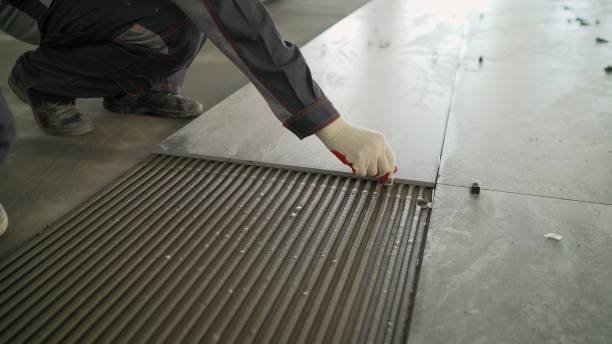
9. Cabinetry and Countertop Installation
Cabinet and countertop installation usually spans 1-2 weeks:
- Cabinets: Pre-assembled cabinets are usually quicker to install compared to ordering custom closets and cabinets. Products that need the final positioning and surface polishing also take time…more so professional cabinets that call for alignment.
- Countertops: Some of the stone countertops will require cutting after the cabinets have been fixed meaning additional time of between 5-7 days for templating and installation.
10. Appliance and Fixture Installation
Installing appliances and fixtures takes 1-3 days:
- Appliances: Proper installation of stoves, refrigerators, dishwashers and other related appliances guarantees normal use and disallows incidents such as leaking gas or water.
-
Lighting and Fixtures: Lighting and plumbing fixtures complete your design and introduce a function to your space that is beautiful.
11. Painting, Finishing Touches, and Detailing
The culmination aspect adds the lace to the gown. Painting and Detailing generally take 3-5 days:
- Painting: New coats of paint on the walls and cabinets help provide that clean, good look and make the place bright.
- Backsplash and Tile Work: Applying backsplash is a simple addition that contributes a lot to the décor of this space of the house.
- Final Details: Wiring of hardware equipment, cementing of countertops and any other modification to allow all the installed hardware to fit as planned.
12. Inspection and Quality Assurance
The inspection phase, lasting 1-2 days, ensures everything is up to code:
- Final Inspections: Most suburbs need a ‘lock-up’ inspection to ensure all the electrical and plumbing done was done to appropriate standards.
- Punch List Items: Prepare a list of work aspects that require the last look before they can conclusively refer to the project as complete.

13. Cleaning and Debris Removal
Post-renovation cleanup takes 1-2 days:
- Cleaning: Technicians will vacuum, mop and scrub surfaces to ensure that your kitchen is clean, and all the protective materials are cleared.
- Debris Removal: Tidy up after yourself and remove remaining products, and wasted building materials to avoid fines and also polluting the environment.
14. Expert Advice on Managing Timelines
Using the contractor’s advice and feedback from past projects, the project should remain flexible. understand that the communication line should not be closed, achievements should be noted and also problems should be reported as they occur.
15. DIY vs. Hiring Professionals
Cooking at home may take longer than eating at restaurants, but the cost is considerably lower than eating in restaurants, while work done by professional builders is faster and of high standards but charges a lot of money. Choose what is best for you.
16. Conclusion
The kitchen renovation timeline is not plain, and it depends on many factors, for example, the size of your house, the availability of contractors and the times needed to purchase the material. If you know what awaits you, then you know how to prepare in terms of money, time, and possible disturbances heading towards a dream kitchen.

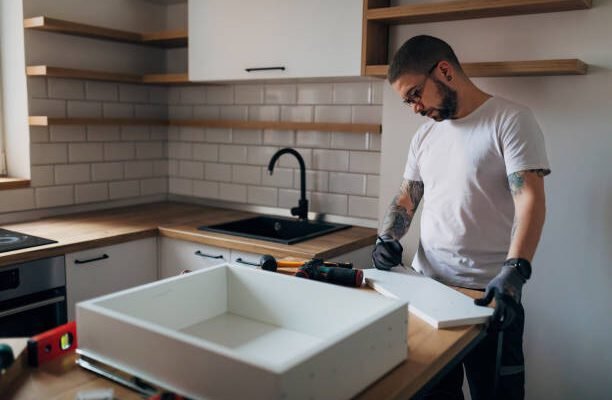

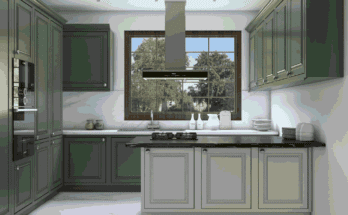
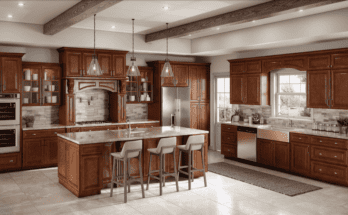
One Comment on “How Long Does a Dream Kitchen Renovation Take?”